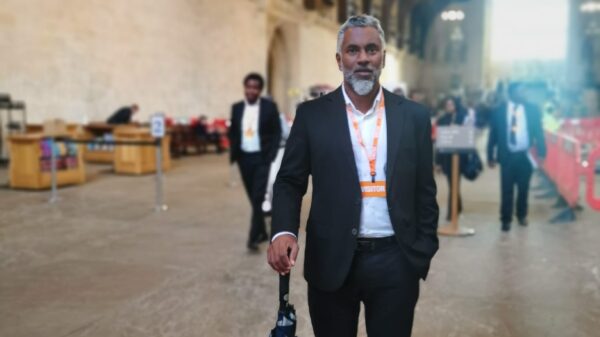As Russia stoked hopes of a diplomatic solution and claimed to be pulling back forces from the Ukrainian border, U.S. and NATO officials accused Moscow of building up troops instead.
KYIV, Ukraine — Tensions over Ukraine abruptly ratcheted up on Wednesday as Western officials accused Russia of lying about whether it had really begun pulling back troops from the Ukrainian border.
After days marked by flickers of hope that the conflict might be resolved peacefully, a senior American official, who refused to be quoted by name, told reporters that far from winding down its deployment, Moscow had added more than 7,000 combatants. Western allies expressed similar doubts about the Russian claims.
The American official directly accused Russia of lying, saying there was fresh evidence it was mobilizing for war.
British military officials said Wednesday they had spotted Russian armored vehicles, helicopters and a field hospital moving toward Ukraine’s border.
“Contrary to their claims, Russia continues to build up military capabilities near Ukraine,” Lt. Gen. Jim Hockenhull, the British chief of defense intelligence, said in a statement. “Russia has the military mass in place to conduct an invasion of Ukraine.”
The Western warnings contrasted sharply with Russia’s attempts to show that it was de-escalating.
Only hours earlier, the Russian Defense Ministry had released a video of a military convoy departing Crimea over the 12-mile bridge to Russia that President Vladimir V. Putin ordered built after the peninsula’s 2014 annexation. And the Kremlin’s spokesman praised the United States for being willing to negotiate and for offering constructive ideas.
With the sudden turn of events Wednesday night, the outlines of any diplomatic solution to the crisis once again looked very hard to discern.
In recent days, American officials had pointedly declined to accept Russian claims of a pullback.
On Wednesday, Secretary of State Antony J. Blinken, in an interview on MSNBC, said that the military units critical for an invasion force were continuing to move “toward the border, not away from the border.”
To some extent, the battle between the West and Moscow over Ukraine has been one of signaling. To keep international pressure on Russia high, the United States has repeatedly declared that an invasion was near, even imminent. Moscow, in turn, has repeatedly accused Washington of exaggerating the threat.
But beyond the verbal dueling, real troops have been repositioned.
In Brussels, defense ministers from the NATO countries discussed ways to reinforce military positions on its eastern perimeter, while the group’s secretary general, Jens Stoltenberg, said he also saw nothing to support Russia’s claim of a drawdown. “What we see is that Russian troops are moving into position,” Mr. Stoltenberg said.

Mixed signals have been emanating virtually daily from Kyiv and Moscow, posing a challenge for diplomats, analysts and military planners. All sides are following delicate strategies, trying to appear resolute but not inflexible, so as to avoid blame in the event of war.
“There’s a lot of bluffing,” said Igor Novikov, a former foreign policy adviser to President Volodymyr Zelensky of Ukraine. “It’s a poker game at the moment. But a very dangerous poker game.”
After talking up the prospects for diplomacy in recent days, Mr. Putin went silent on the crisis, taking no questions after meeting with President Jair Bolsonaro of Brazil, though his government continued to telegraph openness to diplomacy and dismissed the idea of an invasion.
For Mr. Putin, Russian analysts said, the plan remained to use the threat of war to achieve far-reaching objectives that he would prefer to attain peacefully: a rollback of NATO’s presence in Eastern Europe and the recognition of a Russian sphere of interest in the region, including Ukraine.
Dmitri Trenin, the director of the Carnegie Moscow Center, said he expected many Russian troops to remain positioned near the border, in part to maintain that state of tension. “He will keep the pressure on until he gets a satisfactory answer to his main question,” he said.
Mr. Putin appeared to dial down tensions this week in part because he had already made important early gains in a diplomatic effort that could still last for months. The United States, for instance, said it was prepared to revive talks on the placement of short- and intermediate-range missiles in Europe. Some dialogue had already begun last year.
Mr. Putin has multiple ways to keep the pressure on, among them ominous new military moves, disinformation and cyberattacks. He can also wield political tactics like Tuesday’s vote in Russia’s Kremlin-controlled Parliament that called on Mr. Putin to recognize the independence of the Russian-backed separatists in eastern Ukraine, a move that he said he was not yet prepared to make.
“We are at the end of the beginning,” Mr. Trenin said, suggesting negotiations could continue for some time. “The game itself is still to come.”
One aspect has already emerged into public view: a discussion underway by European, Russian and Ukrainian leaders and officials over whether Ukraine might resolve the threat by abandoning its ambitions to join NATO.
After months of rejecting the Kremlin’s demands that NATO rule out Ukraine’s membership, American officials have also begun to signal that the question is one for Ukrainians themselves to decide. Even Mr. Zelensky has softened a bit recently, saying, “It seems to me that no one is hiding it anymore.”
Analysts say the trick will be to devise a plan that will be acceptable to the Kremlin without provoking a backlash in Ukraine that could destabilize the government.
Understand the Escalating Tensions Over Ukraine
A brewing conflict. Antagonism between Ukraine and Russia has been simmering since 2014, when the Russian military crossed into Ukrainian territory, annexing Crimea and whipping up a rebellion in the east. A tenuous cease-fire was reached in 2015, but peace has been elusive.
“Everyone must step back a bit here and make it clear to themselves that we just can’t have a possible military conflict over a question that is not on the agenda,” Germany’s chancellor, Olaf Scholz, said after meeting with Mr. Putin on Tuesday, speaking of Ukrainian NATO membership.
A Ukrainian deputy prime minister, Iryna Vereshchuk, suggested a referendum as a way to sell what would surely appear to be a concession to the Ukrainian public.
“The president assumes there is such a possibility, if there are no other options or tools,” Ms. Vereshchuk said in an interview on Ukrainian television. The prospects of Russia agreeing to a referendum are uncertain, as preparations could take months, during which it would be costly for Moscow to continue to maintain the threat of an imminent invasion.
But in a signal of possible American support, Wendy R. Sherman, the deputy secretary of state who in earlier rounds of talks had refused to accede to Russian demands that the United States rule out NATO membership for Ukraine, said in an interview published Wednesday that it would support any decision made by the Ukrainians.
“This decision remains with the Ukrainian people, what they want, where they see their future,” Ms. Sherman told Yevropaiska Pravda, a Ukrainian news outlet. “This is your choice.”
It seems certain that Mr. Putin will not be satisfied with simple assurances that Ukraine has no intention of joining NATO currently, or a vague moratorium. “They are telling us it won’t happen tomorrow,” he said Tuesday. “Well, when will it happen? The day after tomorrow?”
Analysts have suggested setting a length for a moratorium, say 20 to 25 years, to assuage Mr. Putin’s misgivings.
Mr. Scholz pressed the idea of a lengthy delay, saying any Ukrainian entry into NATO was not likely during either of their terms in office. “I don’t know how long the president intends to stay in office,” he said, in a rare barb by a German leader directed at Mr. Putin. “I have a feeling for a little while yet, but certainly not forever.”
Senior Russian officials had some fun of their own, needling Washington for its prediction that an invasion could start on Wednesday— perhaps in the wee hours of the morning, according to some news reports. Maria V. Zakharova, the Foreign Ministry’s often caustic spokeswoman, said she would appreciate U.S. and British news outlets publishing the schedules for Russia’s “invasions” in the coming year, because “I’d like to plan my vacation.”
Andrew E. Kramer reported from Kyiv, Anton Troianovski from Moscow and Michael D. Shear from Washington. David E. Sanger contributed reporting from Munich.

























